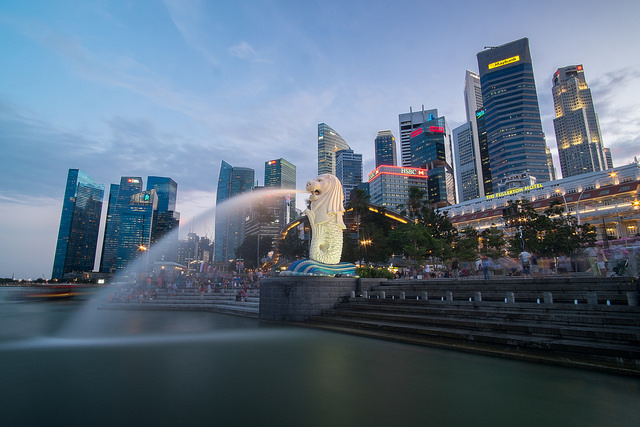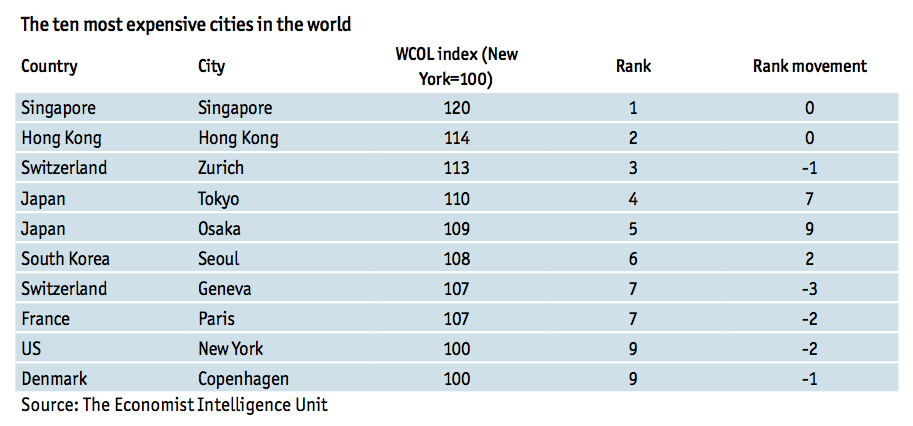
Photo: 20860542330_92df58d1ef_z
Singapore challenges ‘most expensive city’ rank
27 March 2017
by Jonathan Andrews
The city-state of Singapore has challenged its ranking by The Economist Intelligence Unit‘s Worldwide Cost of Living 2017 as the world’s most expensive city.
This survey found that Singapore was 20 percent more expensive than New York and 5 percent than neighbouring Hong Kong, which came in second. Asia now hosts five out of the top six ranked cities in the world, which compares the price of over 150 items in 133 cities around the world, with four European cities and New York joining them to complete the top ten.
This is the fourth year running that the city has been named the most expensive. Last year the Government of Singapore challenged the findings saying the survey is aimed toward HR managers and expatriates to compare the cost of living to calculate costs of relocation expenses and packages.
“The survey findings do not reflect the cost of living of Singaporean households,” the government website says. “Currency fluctuations affect the rankings and cost of living of expatriates who earn their income in foreign currencies, they have less impact on Singaporeans who earn their income in the local currency.”
Australasia and Brazil saw the fastest rise in the relative cost of living this year. Brexit has caused uncertainty leading to a depreciation of the British pound which pushed Manchester and London down the rankings. London, this year ranked 24th, is at its lowest position in 20 years.
Asia is also home to many of the world’s cheapest cities with Bangalore, Chennai, Karachi, Mumbai and New Delhi making up half of the ten cheapest locations surveyed. The cheapest ranked city was Almaty in Kazakhstan and was joined by Nigeria’s biggest city, Lagos, which fell 16 places to 132nd place.
The Worldwide Cost of Living is a bi-annual Economist Intelligence Unit survey that compares more than 400 individual prices across 160 products and services. These include food, drink, clothing, household supplies and personal care items, home rents, transport, utility bills, private schools, domestic help and recreational costs.







